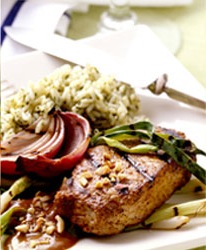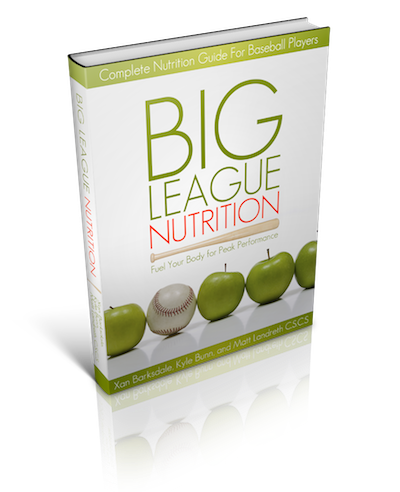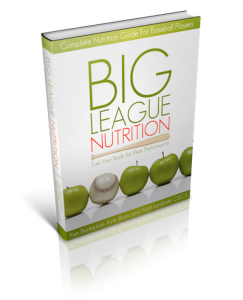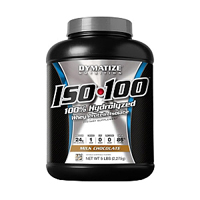 Let’s face it. A majority of baseball players and coaches do not have a clue when it comes to baseball nutrition. Skinny players should eat more. Fat players should eat less. That’s all there is to know, right?
Let’s face it. A majority of baseball players and coaches do not have a clue when it comes to baseball nutrition. Skinny players should eat more. Fat players should eat less. That’s all there is to know, right?
Unfortunately, there’s more to baseball nutrition than that. So, let’s take a look at the various roles that protein, carbohydrate, fat, and water can play in your baseball nutrition game plan.
Protein
Protein seems to get most of the hype when it comes to nutrition discussions for athletes. Even people who do not play sports understand that protein is an important part of any diet. For baseball players though, protein can help enhance on-field performance. But, how much protein should be a part of a baseball player’s nutrition plan?
Athletes require a higher amount of protein in their daily diets because they place a greater demand on their body when training or performing. So, while the average adult should consume about 0.8 grams of protein per kilogram of bodyweight, baseball players should eat 1.5-2.0 grams/kg of bodyweight. High-quality sources of protein include eggs, meat, fish, and chicken.
Remember, this is just a general guideline and every baseball player should evaluate his own nutrition plan and goals to determine the right amount of protein to include in his diet plan.
Carbohydrates
Carbohydrates provide the body with fuel and energy, making them a huge player in performance as well. Carbohydrates can be found in a variety of foods including pasta, breads, cereal, fruits, and vegetables.
Baseball players usually don’t think about the amount of carbohydrates they eat. However, a solid variety of carbohydrate, protein, and fat is important in any baseball nutrition plan to support training and performance. Different athletes will have different needs when it comes to carbohydrates, but a general guideline for baseball players is about 5-6 g/kg of bodyweight.
Remember, baseball is a power and sprint-based sport. So baseball players do not typically train aerobically. This means that ballplayers do not deplete their carbohydrate stores as quickly as an endurance athlete. So, carbohydrate intake should be individualized based on sport, training program, and personal dietary needs.
Fat
Fats play an important role in building a solid baseball nutrition plan. Although fats are often perceived negatively, there is no valid reason to avoid fats altogether in your diet.
Fats serve many purposes in the human body, including but not limited to:
- A source for energy
- As insulation and protection of organs
- Help regulate the uptake and excretion of nutrients
- The formation of healthy cell membranes
So how does fat play a role in athletic performance? The biggest benefit of fat comes as an energy source during low-intensity exercise. As intensities increase, the body begins to gradually use more carbohydrate instead of fat as its main source of energy. So, as an energy source, carbohydrates are more beneficial to baseball players than fats. However, having a diet that is too non-fat or low fat can have negative effects on an athlete’s performance because it can lead to the under-consumption of various meats and dairy sources that provide athletes with excellent sources of protein and other essential vitamins and minerals.
With this information in mind, you should seek to have an adequate amount of fat in your baseball nutrition plan. After reviewing the total number of calories you need, you should plan on eating between 15-35% of your calories from fat. The higher percentage should be considered during longer periods of heavy training or higher intensity training. A lower percentage of fat should only be considered for athletes who need to lose weight in order to increase their performance. In rare cases, athletes who need to decrease high cholesterol levels should consider eating a lower fat diet, but this should be reviewed by a knowledgeable registered dietitian. Athletes that eat less that 15% of calories from fat run the risk of lowering their metabolism and decreasing their potential for increasing muscular strength and development.
Water
Water is the most abundant resource on the planet. Despite its great quantity, most baseball players do not drink enough of it. It can be argued that water affects baseball performance more than any other nutrient. If dehydrated, the athlete’s body cannot adapt as every physiological function will be impaired.
The human body can survive without food for about 30 days. Without water, the body can survive approximately one week. What does that say about the importance of water?
Staying hydrated plays a vital role in regulating cellular function and body temperature. Most athletes only replace about 50-60% of water lost during training or competition. Many baseball players only drink fluids when they are thirsty, but thirst is not a reliable indicator of hydration needs. In order to stay hydrated, you should consider drinking fluids before, during, and after exercise. Here are some basic guidelines:
- Pre-training or pre-game – Drink about 16 fluid ounces two hours before activity. In warmer weather, this amount should be increased.
- During activity – Drink fluids consistently and frequently. About 6-8 fl. oz. every 15 minutes should be consumed. When activity is less than an hour in length (i.e. a short training session), water should be the main source of hydration. However, if activity goes beyond 60 minutes, a sports drink (Gatorade) can be considered as it will help replace fluid as well as electrolytes and muscle-glycogen stores. (Most sports drinks contain tons of sugar which can rapidly raise blood sugar levels and can contribute to increased body fat. Drink them sparingly unless training is very intense or the session is extended longer than an hour.)
- Post-training or Post-game – The baseball player’s goal should be to completely rehydrate prior to the next training session or competition. He should drink about 20 fl. oz. for every pound of body weight lost during activity.

Big League Nutrition
If you are looking for a baseball nutrition plan that can be individualized for you, then you need to check out Big League Nutrition. Not only will this resource go more in depth regarding protein, carbohydrates, and fats, it will also help you learn how much of each nutrient you need based on your body type. Furthermore, you will learn how to time your eating around baseball games, tournaments, and workouts to maximize performance in the gym and on the field.




